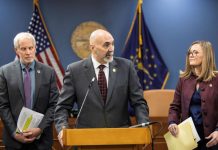The Economic Challenges of Regions Highly Dependent on Tourism
Wages Associated with Tourism Employment
by JOE WALLACE
July 10, 2024
Regions heavily dependent on tourism often experience a unique economic structure characterized by a high proportion of jobs in the hospitality, entertainment, and service sectors. These jobs, while abundant, are typically associated with lower wages compared to other industries. Positions in hotels, restaurants, and tour services often pay minimum wage and may lack benefits such as health insurance and retirement plans. Furthermore, many tourism-related jobs are seasonal, leading to periods of unemployment or underemployment during off-peak seasons. This employment instability can make it difficult for workers to achieve long-term financial security and upward mobility.
Despite these challenges, tourism employment can also offer opportunities for entry-level workers and those with limited formal education to participate in the workforce. Additionally, in some regions, the presence of high-end tourism can create a subset of well-paying jobs in management, marketing, and specialized services. However, these opportunities are often limited compared to the larger pool of lower-wage positions.
Sensitivity to Economic Volatility
Regions that rely heavily on tourism are particularly vulnerable to economic volatility. External factors such as global economic downturns, natural disasters, political instability, and health crises can significantly impact tourism flows. For example, the COVID-19 pandemic led to unprecedented declines in travel and tourism, causing severe economic disruption in tourist-dependent regions worldwide. The sudden drop in tourist numbers resulted in massive job losses, business closures, and significant declines in local revenues.
Economic sensitivity is not only linked to global crises but also to seasonal variations and changing consumer preferences. Tourist destinations must continuously adapt to shifting trends and market demands to remain competitive. Failure to do so can lead to a decline in visitor numbers and economic instability. The dependency on tourism also means that local economies can suffer from a lack of diversification, making them less resilient to shocks in the tourism sector.
Temptation to Avoid Economic Diversification
Local officials in tourism-dependent regions often face the temptation to avoid supporting efforts dedicated to economic diversification. The immediate and visible benefits of tourism, such as job creation, increased tax revenues, and infrastructural developments, can create a strong incentive to focus resources on maintaining and expanding the tourism sector. Additionally, tourism can be a politically attractive industry, as it tends to generate quick wins and visible economic activity that officials can leverage for electoral support.
However, this short-term focus can be detrimental in the long run. Overreliance on tourism can lead to economic fragility, with little to fall back on during downturns. Diversifying the economy by developing other sectors, such as technology, manufacturing, or agriculture, can provide a more stable and sustainable economic foundation. Yet, achieving diversification often requires significant investment, long-term planning, and a shift in policy focus, which can be challenging to prioritize over the immediate benefits of tourism.
Balancing Tourism and Diversification
For regions dependent on tourism, finding a balance between leveraging tourism’s benefits and pursuing economic diversification is crucial. Policymakers should aim to create a robust tourism sector that can coexist with and support the development of other industries. This can involve investing in infrastructure and education to attract and develop other forms of economic activity.
Additionally, promoting sustainable tourism practices can help mitigate some of the volatility associated with the sector. By focusing on quality over quantity, regions can attract higher-spending tourists, reduce environmental impacts, and create more stable and well-paying jobs. Public-private partnerships and community involvement are essential in creating a diversified economic landscape that benefits from tourism while also building resilience against economic shocks.
Conclusion
Regions that are highly dependent on tourism face unique economic challenges, including low wages in tourism-related jobs, sensitivity to economic volatility, and the temptation for local officials to avoid diversification efforts. While tourism can provide immediate economic benefits and job opportunities, overreliance on a single industry can lead to long-term economic fragility. Balancing tourism with efforts to diversify the economy is essential for creating a stable, sustainable, and resilient economic future. By investing in other sectors and promoting sustainable tourism practices, regions can ensure they remain vibrant and economically healthy, even in the face of global challenges.





